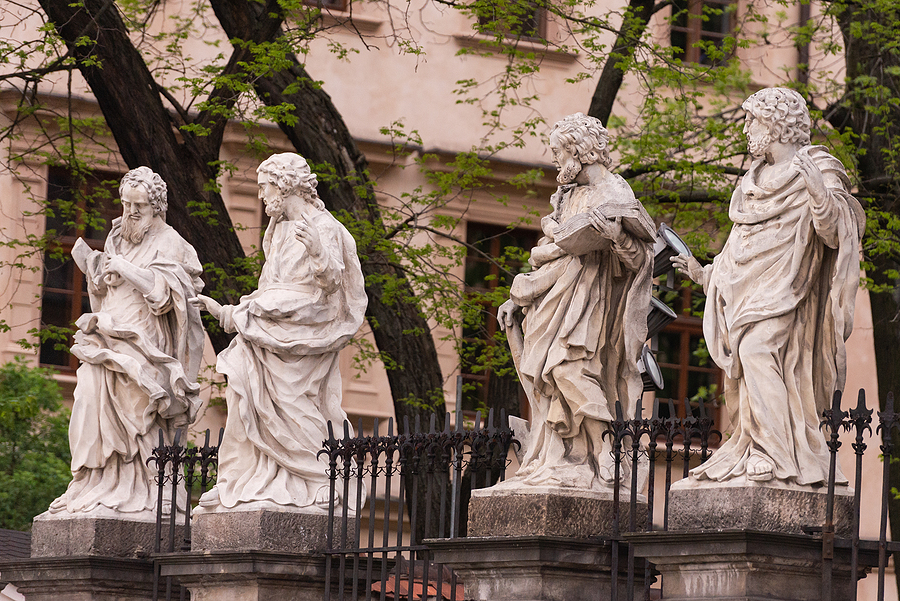
How My Faith Has Changed
When I recently met with my bishop to relay an important shift in my theology, I wasn’t sure how she might react. Would I be brought up on charges? Given a good talking to? De-frocked? It was a chance I needed to take. I had to be true to myself and my evolving understanding of a life in Christ. I needed to tell her how my faith has changed.
It’s not the first time my faith has changed. Or the first such conversation I’d had with a religious leader.
As we sat down to meet over Zoom, I remembered another conversation that took place some thirty years earlier. At the time, I was a member of the Orthodox Jewish community. Jesus had recently appeared to me in an unexpected vision. His kind eyes had conveyed his unconditional love, acceptance, and understanding of me. The whole encounter lasted no more than thirty seconds. But that moment in time was seared into my cells. How little I understood of Him at the time! But it was enough to meet with my rabbi to tell him “My faith has changed. I need to follow this new path, even if it leads me out of the Jewish community.”
Which it did. Some six or seven years later, I was ordained into the United Methodist Church, and counted myself among the friends and followers of Jesus, which I write about in my book, The Jew Named Jesus.
So what necessitated this Zoom meeting with my bishop? It was the United Methodist mission statement, “We are called to make disciples of Jesus Christ for the transformation of the world.”
I said to my bishop: “I used to believe that. But I don’t anymore. My faith has changed.”
I went on to share that I don’t think faith at the level of discipleship is what causes transformation in the world. That kind of faith is good for following, learning, and absorbing. But not for transforming the world. The faith of a disciple is not hardy enough or robust enough. Not in Jesus’ day. And not now.
I think transformation of the world requires more than following Jesus or believing in Jesus.
I say that because when you look at The Twelve, they didn’t accomplish much at first. They didn’t understand Jesus’ basic instructions, couldn’t follow what He was talking about, and didn’t get how He did what He did.
It wasn’t until The Twelve stepped into the apostolic mode that they could participate in the multiplication of loaves and fishes, heal the sick, cast out demons, or announce the kingdom. It was in that context that Peter dared to step out onto the water with Jesus.
What made the difference? I don’t think it’s so much that The Twelve believed in Jesus more. I think it’s that their faith changed. They not only believed in Jesus, but they also started to believe like Jesus. It seems to me that there is no way that the apostles could have done what Jesus did except to believe the kinds of things that Jesus believed.
I don’t believe Jesus was training His friends and followers in new techniques. Rather, it was a new consciousness. He taught them how to experience unity with God so they too could have access to the miraculous.
That’s what I mean by apostolic faith. The Twelve had a fundamental shift in consciousness. The kind of shift necessary to co-create miracles with God.
Here’s the bottom line. I think Jesus invites all of us to change our faith. To fully experience our inner divinity as well as our outward humanity.
This is what I think can bring about the transformation of the world. Because when we each tap into the deep reservoir of soul and spirit within us, anything is possible. Starting with our own transformation. Then leading out from there to the rest of the world around us.
So, that’s how my faith has changed. I’m for more faith. More unity with God. And more miracles. I’m glad I took the chance to share my changing beliefs. No, I didn’t get defrocked. Instead I got to engage in Christian conferencing and the sharing of ideas in a warm and respectful atmosphere.
Need help finding the confidence to take your chance? Join a Creating a Culture of Renewal cohort! You’ll learn communication and leadership skills to powerfully move your congregation forward while staying true to yourself. Visit https://rebekahsimonpeter.com/ccr-register for more information and to register.
Copyright © 2021 rebekahsimonpeter.com, All Rights Reserved.










